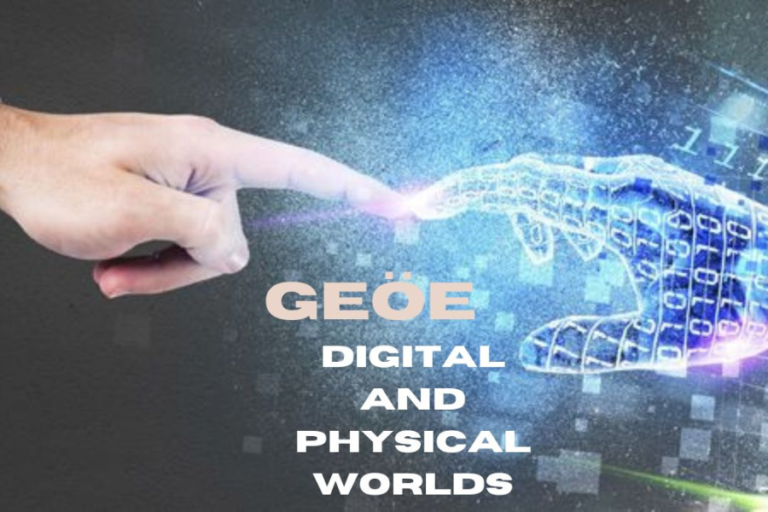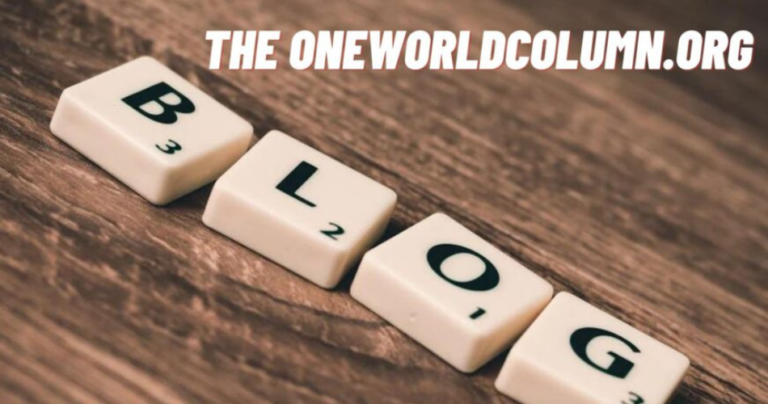The Vital Role of Переводчимк in Today’s Global Society
Introduction
In our increasingly interconnected world, the importance of effective communication among speakers of different languages is more evident than ever. Translators, or “переводчики” in Russian, are essential in bridging these linguistic divides. They ensure that ideas, documents, and conversations can be conveyed smoothly across cultural boundaries. Without the expertise of translation services, individuals and cultures risk isolation, hindering their ability to understand and engage with one another fully.
This article explores the intriguing realm of переводчики, highlighting their critical role across various industries, the challenges they face, and how modern technology is reshaping the translation landscape. We will delve into the complex art of translation, which goes beyond simple word-for-word exchanges, and underscore the significant contributions translators make to society.
Understanding the Role of Переводчимк
The term “переводчик” refers to a professional translator in the Russian language, someone adept at accurately conveying both written and spoken content between different languages. However, this profession involves much more than merely translating words. An accomplished переводчик possesses a profound understanding of the subtleties and intricacies of both the source and target languages. This expertise allows them to maintain the original message and cultural context of the content being translated.
Whether dealing with legal documents, scientific articles, literary texts, or casual conversations, переводчики play a vital role for businesses, government agencies, and individuals who need effective communication across linguistic barriers. Their skill set is crucial for ensuring clarity and understanding in a globalized world, making them invaluable in various fields.
The Significance of Translation in Today’s World
Translation holds immense significance across various sectors, and its value is increasingly recognized in our interconnected society. Here are several key reasons why the role of skilled translators is essential:
Facilitating Effective Communication and Collaboration
Translation serves as a crucial bridge that connects individuals from different linguistic and cultural backgrounds. In today’s global economy, businesses rely heavily on the expertise of professional translators to navigate negotiations, create contracts, and successfully market their products in international arenas. Without effective translation services, the complexities of international trade would multiply, stifling economic development and collaborative ventures across borders.
Preserving and Sharing Cultural Heritage
Translators play a vital role in safeguarding and sharing cultural legacies. Renowned literary works—from the plays of Shakespeare to the profound writings of Russian authors like Dostoevsky—have been translated into numerous languages. Through the dedicated efforts of translators, individuals gain access to a rich tapestry of cultures, viewpoints, and historical narratives, deepening their appreciation of global diversity and fostering mutual understanding among different communities.
Bridging Diplomatic Divides
In the sphere of international diplomacy, translators are indispensable. They facilitate meaningful discussions and negotiations among leaders from various nations, whether at government summits, international courts, or institutions like the United Nations. By ensuring that language barriers do not obstruct dialogue, translators play a pivotal role in maintaining diplomatic relations and promoting peace on a global scale.
Enhancing Accessibility to Information
The services of proficient translators are crucial in making information accessible to wider audiences. This is especially important in critical areas such as education, healthcare, and public service, where clear and accurate communication can significantly influence lives. By translating essential documents and resources into multiple languages, translators guarantee that crucial information reaches all individuals, regardless of their linguistic background.
The Importance of Translators in Diverse Sectors
Translation is vital in a multitude of industries, yet some sectors depend on the expertise of translators—переводчимк—more than others. Below, we delve into how these professionals significantly enhance communication in various fields:
Business and Finance
As globalization continues to shape the business landscape, effective communication becomes increasingly essential. Companies with international operations rely on переводчимк to engage with clients, partners, and suppliers across different linguistic backgrounds. Translators are instrumental in crafting legal documents, creating marketing strategies, and providing multilingual customer support. Furthermore, financial institutions rely heavily on their skills to translate vital financial documents, including reports and forecasts, ensuring stakeholders worldwide receive accurate information.
Legal Sector
In the legal field, precision is critical. Translators who specialize in legal texts are entrusted with translating documents such as contracts, patents, and case materials, ensuring that every nuance is captured accurately. A single misinterpretation could lead to costly legal ramifications, making professional legal translators indispensable in preventing disputes and protecting client interests.
Healthcare
Clear communication is essential in healthcare for delivering effective patient care. Переводчимк play a crucial role in facilitating dialogue between medical professionals and patients who speak different languages. They translate essential documents, including medical records and treatment instructions, ensuring that diagnoses and care plans are accurately conveyed. In this context, the contributions of translators can be truly life-saving, as precise communication is fundamental to successful medical outcomes.
Technology and Science
The fast-paced advancements in technology and science demand translation services to make products and research comprehensible on a global scale. Translators are tasked with software localization, user guides, and technical documentation, ensuring that users can fully grasp and utilize innovative technologies. In the scientific arena, переводчимк play an essential role in translating research papers and findings, fostering the international exchange of knowledge and breakthroughs.
Literature and Media
Cultural works, including novels, films, and television programs, often require translation to connect with broader audiences. Translators not only convert text but also adapt narratives for different cultural contexts, preserving the story’s essence while making it relatable to new viewers or readers. This adaptation process is vital for ensuring that the translated material retains the emotional and thematic richness of the original work.
Challenges Encountered by Translators
The path of a translator is fraught with various challenges that require skill and adaptability. Here are some of the most prominent hurdles faced by professionals in this field:
Navigating Cultural Differences
Translators often grapple with the complexities of cultural subtleties. Every language is imbued with idioms, humor, and expressions that may lack direct equivalents in another tongue. For example, a comedic reference appreciated in one culture may not resonate in another. As such, skilled translators must find innovative ways to express these ideas, ensuring they retain the original meaning while being relatable and understandable for the target audience.
Ensuring Technical Precision
In specialized domains such as healthcare, legal affairs, and technology, accuracy is paramount. A single error in translation can lead to significant repercussions. For instance, misinterpreting a medical symptom could adversely affect treatment outcomes. Consequently, translators working in these fields must not only excel in language proficiency but also possess in-depth knowledge of the relevant subject matter.
Preserving the Author’s Distinctive Style
When translating literary works, it is vital to maintain the author’s unique voice and stylistic elements. Achieving this requires a blend of linguistic skill and creative insight. A straightforward translation might accurately convey the words but could miss the essence of the author’s tone, mood, and intent. Therefore, adept translators strive to craft translations that resonate with the audience while respecting the original work’s artistic integrity.
Managing Time Effectively
Translators frequently operate under stringent deadlines, making effective time management crucial. Balancing multiple assignments while ensuring quality can be daunting. It necessitates strategic prioritization and thoughtful allocation of time, enabling translators to meet their commitments without compromising on excellence.
The Role of Technology in Translation
In recent years, technology has significantly transformed the translation industry. Tools and applications like Google Translate have democratized access to basic translation services, allowing a wider range of users to communicate across language barriers. While these technologies can provide quick translations, they often fall short when dealing with complex texts, idiomatic phrases, and cultural nuances.
Currently, human translators play a crucial role in delivering high-quality translations that require a deep understanding of context and cultural subtleties. Despite the advancements in machine translation, the unique insights and expertise that professional translators offer are irreplaceable. However, as technology continues to progress, it is likely that translators will increasingly collaborate with machine tools. This partnership can streamline workflows while maintaining the necessary human touch for accuracy and cultural relevance.
The Future of Translation Professionals
As the demand for translation services rises, the outlook for professional translators is bright. With globalization accelerating and cultural interactions becoming more commonplace, the need for skilled translators is expected to grow. Cutting-edge technologies such as artificial intelligence (AI) and machine learning are poised to enhance the translation process, making it more efficient while still relying on the expertise of human professionals.
Furthermore, as businesses expand into international markets, the significance of translators will become even more apparent. Companies are likely to recognize the value of investing in high-quality translation services to ensure their communications resonate with diverse audiences across various cultural landscapes.
By combining technological advancements with human expertise, the translation industry can evolve to meet the challenges of an increasingly interconnected world, ensuring effective communication across languages and cultures.
Essential Qualities of a Successful Translator
Becoming an effective translator requires more than just language proficiency; it necessitates a unique blend of skills and characteristics that enable professionals to thrive in this demanding field. Here are some key attributes that distinguish outstanding translators:
1. Proficient Language Abilities
A successful translator must have a robust command of both the source and target languages. This includes a comprehensive understanding of grammar, a rich vocabulary, and the ability to grasp idiomatic phrases. Such expertise is vital for producing translations that are both accurate and fluid.
2. Cultural Competence
A deep cultural understanding of both languages is crucial for effective translation. A skilled translator recognizes the nuances and subtleties of cultural contexts, which helps in conveying the intended meaning and tone of the original text. This cultural insight ensures that translations resonate appropriately with the target audience.
3. Meticulous Attention to Detail
In translation, accuracy is paramount. Even minor errors can lead to significant misunderstandings. Therefore, a translator must exhibit great care and thoroughness in their work, ensuring that each translation is of the highest quality.
4. Effective Time Management
The nature of translation work often involves tight deadlines. Consequently, proficient time management is essential. Translators must be adept at organizing their tasks, prioritizing effectively, and allocating their time wisely to meet deadlines without sacrificing quality.
5. Area of Specialization
Translators who focus on specific domains, such as legal, medical, or technical fields, can deepen their expertise and increase their value in the job market. Specialization allows them to become familiar with the relevant terminology and conventions within their chosen sector, enhancing the quality and accuracy of their translations.
Steps to Become a Translator
If you’re aiming to embark on a career as a translator, consider following these essential steps to guide your path:
1. Master Your Languages
Achieving a high level of proficiency in both your source and target languages is crucial. You might achieve this by enrolling in language courses, immersing yourself through travel, or participating in language exchange initiatives that provide practical speaking opportunities.
2. Pursue Relevant Education
Consider earning a degree in translation, linguistics, or a closely related discipline. Formal education not only equips you with theoretical knowledge but also sharpens your practical translation skills, laying a solid foundation for your career.
3. Gain Practical Experience
Look for internships, freelance projects, or volunteer positions that offer hands-on experience in translation. Engaging in real-world translation tasks will enhance your abilities and help you create a robust portfolio to showcase your work.
4. Identify Your Niche
Explore various fields to determine your area of specialization, which could include legal, medical, technical, or literary translation. Focusing on a niche allows you to leverage your unique skills and interests, making you more attractive to potential clients.
5. Commit to Lifelong Learning
The translation industry is ever-changing, so it’s vital to keep abreast of new trends, tools, and technologies. Attend workshops, seminars, and online courses to enhance your expertise continually and maintain a competitive edge in the market.
Conclusion
In conclusion, translators play an indispensable role in our increasingly interconnected world. Their expertise in navigating linguistic and cultural differences is crucial for fostering collaboration, mutual understanding, and enhancing accessibility. As the demand for translation services continues to rise, the significance of proficient translators will only become more apparent.
Through their commitment and knowledge, translators serve as vital connectors between diverse languages, creating meaningful relationships and enriching experiences. With the advancement of technology, the translator’s role is likely to adapt, yet their essential function in enabling communication and promoting cultural exchange will remain vital in our global society.
Stay informed with the latest news and updates on Cnbcblog.com






